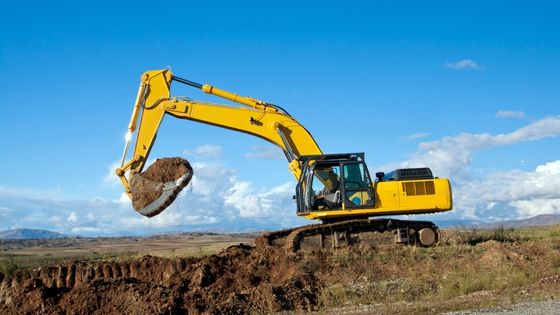Everyone experiences problems with their excavator at some point in their career. It can be tires, hydraulics, fuel system, and all kinds of other mechanical issues. Sometimes these issues arise suddenly when you are operating it or going to operate it.
Let’s suppose you’re on the job site and you notice your excavator is not performing at its fullest potential. As an experienced excavator operator, you know it’s time to try to figure out the problem so you can solve it. But what are some of the most common problems that cause trouble for excavators? What should you do if your excavator breaks down in the middle of a project? How do you fix a cab that won’t stop spinning around?

Becoming a professional excavator operator is a great objective. But it may not be easy to learn this skill. However, at the same time, you should be aware of your skills as well as knowledge of the various problems that might come on the site.
Resolving problems for used excavators for sale on the job site is never an easy task. This is mainly because of several factors affect how difficult it will be to solve them. Nevertheless, while they are not easy, they are not impossible either, which is why it’s crucial to know how to resolve them.
In this article, we’ll talk about some common problems with excavators as well as steps you can take to resolve them when they occur.
When Excavator Doesn’t Move
It does not matter if you are using a cat excavator for sale or any other brand, when it gets too old it will create issues in moving. The most common reason your excavator won’t move on the job site is because of broken gear.
This can happen if you’re working on uneven ground, if the soil is too hard or soft, or if it’s just very slippery when wet. If you’re in a tight spot, try to back up and clear a path so that you don’t get stuck. When this happens, you need to check the following things and get them fixed if found out of order.
- Check the fuel supply
- Check the spark plug
- Check for any clogged air filter
- Check for loose ground
- Replace the primary drive belt
When Excavator gets overheated
If your used excavator for sale gets overheated, you need to take action right away. If you don’t fix the problem, it could lead to permanent damage.
For whatever reason, when your excavator gets overheated, follow these things.
- Unplug the power cord from the back of the machine and allow it to cool down.
- Open the hood and allow air to circulate through the cab.
- Remove any debris on top of the engine, if possible, otherwise clear away leaves or other loose material before plugging in again.
- Check that all hoses and belts are properly attached to their respective components, especially those that are exposed directly to the elements such as water pumps or cooling fans.
When Excavator moves slowly
When an excavator is moving slowly, it is often due to several different things. Sometimes, it can be due to a worn-out tire, something wrong with the hydraulics system, or your excavator has been idling for a long time.
When your excavator is moving slowly, there are a few things you can try.
- Ensure the vehicle is not overloaded. If you have a trailer attached to your excavator, make sure it’s full and won’t tip over.
- Check for loose parts on the vehicle (especially tires).
- Make sure the hydraulic system on your excavator is working properly by looking at the fluid reservoir and making sure there are no leaks around it or in it.
- Check for hydraulic fluid levels in each of your cylinders if possible – especially if you’re using an older model machine that uses hydraulics for many functions like steering wheel movement and controls for doors, lights, and other accessories like air compressors or air tanks that need to be filled with air from a tank on top of the machine.
Conclusion
The excavator can sometimes be very critical to handle on the job site when it gets sudden problems. The equipment operator needs to be mindful enough to handle the situation. If you find any of the above-mentioned situations with the excavator you can resolve the issue on spot. Read the article to find potential tips on the said issue regarding an excavator.
